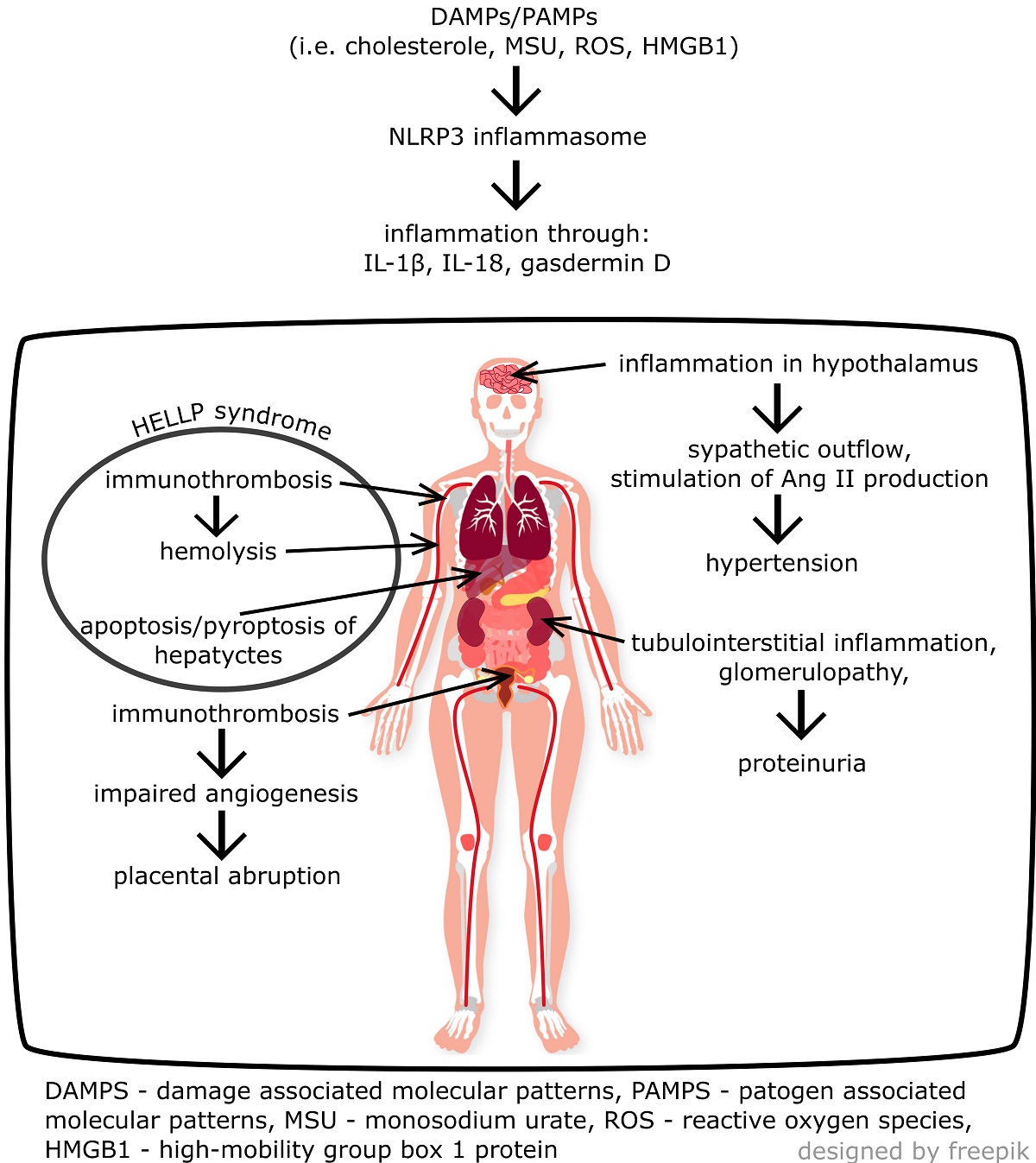Pregnancy-induced hypertension and preeclampsia are associated with significant maternal and fetal mortality. A better understanding of those diseases, delineation of molecular pathomechanism, and efficient treatment development are some of the most urgent tasks in obstetrics and gynecology. Recent findings indicate a crucial role of inflammation in the development of hypertension and preeclampsia. Although the mechanism is very complex and needs further explanation, it appears that high levels of cholesterol, urate, and glucose activates NLRP3 inflammasome, which produces IL-1β, IL-18 and gasdermin D. Production of these proinflammatory chemokines is a beginning of local and general inflammation, what results in sympathetic outflow, angiotensin II production, proteinuria, hemolysis, liver damage, immunothrombosis, and coagulopathy. NLRP3 inflammasome is a critical complex in the mediation of inflammatory response, which makes it crucial for the development of pregnancy-induced hypertension and preeclampsia, as well as its complications, such as placental abruption and HELLP syndrome. Herein presented the article delineate molecular mechanisms of those processes, indicating directions of future advance.

